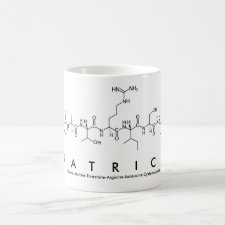
Authors: Van Grinsven B, Eersels K, Akkermans O, Ellermann S, Kordek A, Peeters M, Deschaume O, Bartic C, DiliŽn H, Steen Redeker E, Wagner P, Cleij TJ
Article Title: Label-Free Detection of Escherichia coli Based on Thermal Transport through Surface Imprinted Polymers.
Publication date: 2016
Journal: ACS Sensors
Volume: 1
Issue: (9)
Page numbers: 1140-1147.
DOI: 10.1021/acssensors.6b00435
Alternative URL: https://e-space.mmu.ac.uk/617105/
Abstract: This work focuses on the development of a label-free biomimetic sensor for the specific and selective detection of bacteria. The platform relies on the rebinding of bacteria to synthetic cell receptors, made by surface imprinting of polyurethane-coated aluminum chips. The heat-transfer resistance (Rth) of these so-called surface imprinted polymers (SIPs) was analyzed in time using the heat-transfer method (HTM). Rebinding of target bacteria to the synthetic receptor led to a measurable increase in thermal resistance at the solid-liquid interface. Escherichia coli and Staphylococcus aureus were used as model organisms for several proof-of-principle experiments, demonstrating the potential of the proposed platform for point-of-care bacterial testing. The results of these experiments indicate that the sensor is able to selectively detect bacterial rebinding to the SIP surface, distinguishing between dead and living E. coli cells on one hand and between Gram-positive and Gram-negative bacteria on the other hand (E. coli and S. aureus). In addition, the sensor was capable of quantifying the number of bacteria in a given sample, enabling detection at relatively low concentrations (104 CFU mL-1 range). As a first proof-of-application, the sensor was exposed to a mixed bacterial solution containing only a small amount (1%) of the target bacteria. The sample was able to detect this trace amount by using a simple gradual enrichment strategy
Template and target information: bacteria, Escherichia coli, E. coli
Author keywords: Escherichia coli, heat-transfer method (HTM), point-of-care bacterial testing, Staphylococcus aureus, Surface imprinted polymers



Join the Society for Molecular Imprinting

New items RSS feed
Sign-up for e-mail updates:
Choose between receiving an occasional newsletter or more frequent e-mail alerts.
Click here to go to the sign-up page.
Is your name elemental or peptidic? Enter your name and find out by clicking either of the buttons below!
Other products you may like:
 MIPdatabase
MIPdatabase









